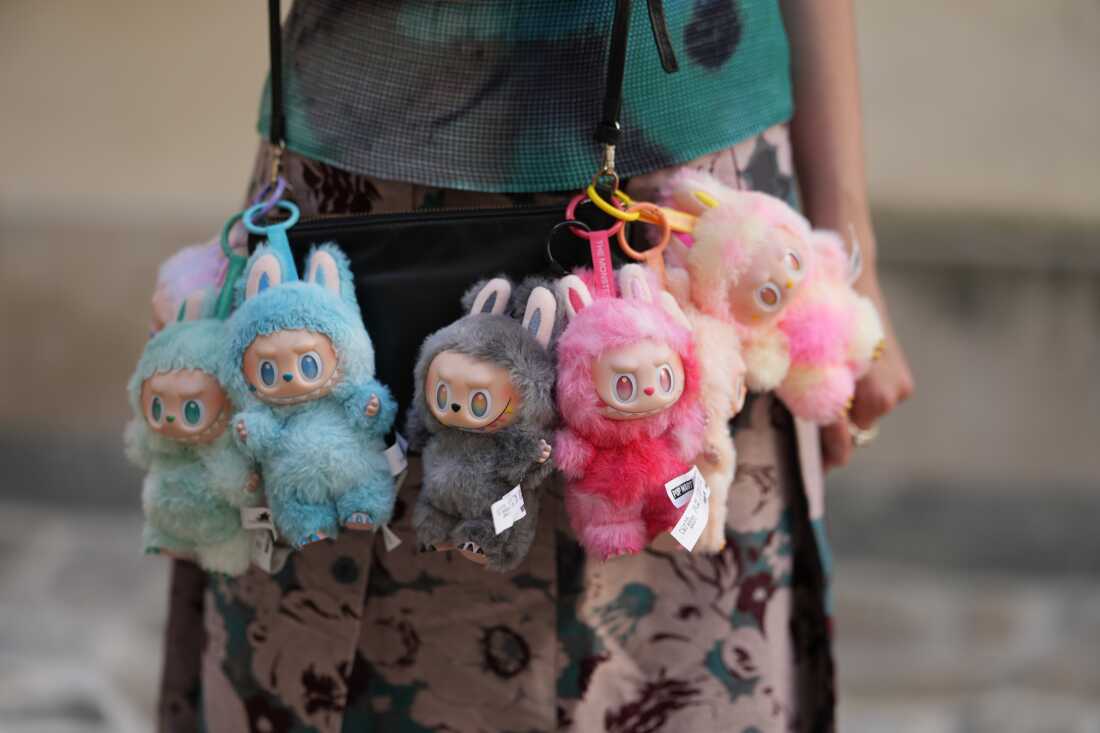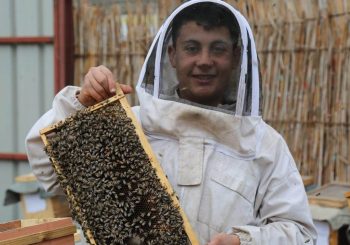The Labubu craze has taken Egypt’s social media scene by storm, transforming from a niche collectible into a widespread cultural phenomenon.
Lububu, quirky, elf-like figures, originally designed by Hong Kong artist Kasing Lung and produced by Chinese toy company Pop Mart, have captivated Egyptian collectors and fashion enthusiasts alike.
Due to its distinctive “ugly-cute” aesthetic, limited-edition allure, and global cult following, Labubu has transcended toy status to become a fashion accessory, embraced by trendsetters who flaunt the figure on bags and outfits. The thrill of the blind-box purchase model, where buyers don’t know which figure they’ll get, has fueled a passionate collector culture, with fans sharing discoveries on social media and lining up for rare releases. Labubu also makes use of the scarcity tool; they are often sold out which tends to increase the value of a product and its resale value.
In Labubu’s case, reaching hundreds of dollars.
Origins of the Craze
Labubu’s journey began in 2015 as part of Lung’s “The Monsters” series, drawing inspiration from Nordic folklore. However, it was not until Labubu collaborated with Pop Mart in 2019 that Labubu gained significant traction. The brand’s global popularity surged in 2024, notably after Lisa from the K-pop band BLACKPINK showcased her Labubu collection on social media, sparking international interest.
In June, a number of Egyptian celebrities fueled the Labubu frenzy by flaunting their latest acquisitions on social media.
Actress Passant Shawky shared snapshots of her growing Labubu collection with excitement, while singer Ahmed Saad posted a now-viral video emotionally celebrating the addition of a rare figure to his set. The video, which drew both admiration and mockery from fans, reflects how even public figures are participating in this collectible craze.
Influencers posting their collection online resulted in Labubu’s appeal growing rapidly through social media platforms like TikTok and Instagram. Collectors began sharing unboxing videos and styling tips, integrating Labubu figures into their daily lives. Local retailers, such as Puzzles and Bingo, capitalized on this trend by offering various Labubu series, including “Exciting Macarons” and “Have a Seat,” with prices ranging from EGP 2,500 (USD 50) to EGP 5,000 (USD 100) for individual figures.
The Egyptian Labubu community thrives on online forums and social media groups, where enthusiasts discuss new releases, trade figures, and share display ideas. This communal aspect has strengthened the brand’s presence, making Labubu not just a toy but a shared cultural experience.
Labubu’s influence extends beyond mere collectibles.
Globally, these figures have become fashion statements, often seen adorning handbags, backpacks, and even used as home décor. The element of surprise inherent in Pop Mart’s blind box sales model adds to the excitement, encouraging repeat purchases and fostering a sense of community among collectors.
Current Status
As of mid-2025, Labubu remains a sought-after item in Egypt. Limited edition releases and collaborations continue to drive demand, with some figures becoming rare collectibles. Retailers frequently restock popular series, and pre-orders are common for upcoming releases.
While Labubu figures are widely celebrated, some social commentators in Egypt and beyond have begun to view the craze as a subtle indicator of economic anxiety. They argue that the sudden obsession with small, collectible toys, many of which are relatively expensive given Egypt’s current economic conditions, with a current inflation rate of 13.9 percent, is a form of escapism.
For some, buying Labubus offers a fleeting sense of joy and control in a time when financial stability feels increasingly out of reach. The blind box format, with its element of surprise and reward, mirrors the psychological appeal of gambling or retail therapy, prompting some to question whether the craze reflects deeper social responses to economic uncertainty and inflation.
The alleged joy of purchasing a Labubu could also add to the celebrity involvement, highlighting a broader trend: how macroeconomic pressures are reshaping consumer behavior, with people, celebrities included, seeking comfort, identity, and even status through emotionally satisfying purchases like Labubu. For instance, if a consumer can not afford a luxury purse, buying a Labubu doll could still give them the sense of owning a luxury item.
Although, like every craze “prime drinks” to “stanley cups”, it is not clear how ephemeral this trend is.







Comments (0)